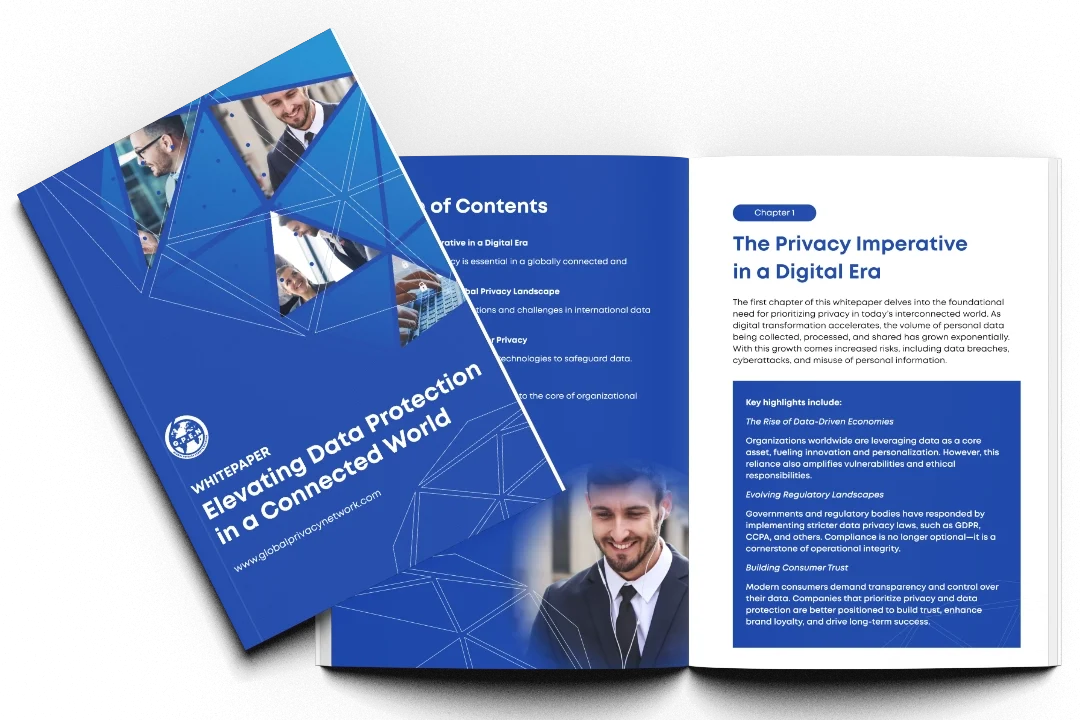The Rising Importance of AI in Data Privacy
AI-Powered Privacy Enhancements
Artificial intelligence (AI) is revolutionizing data privacy by enabling more sophisticated tools and techniques for securing sensitive information. In 2025, businesses are leveraging AI-driven solutions to identify and mitigate privacy risks in real time. These tools analyze vast datasets, detect anomalies, and enforce compliance with privacy regulations automatically.
Key benefits of AI-powered privacy solutions include:
- Enhanced threat detection: AI algorithms can quickly identify potential breaches and vulnerabilities.
- Automated compliance monitoring: Ensuring adherence to privacy laws without manual intervention.
- Improved data anonymization: AI can effectively anonymize personal data, reducing the risk of exposure.
Challenges of AI in Data Privacy
While AI offers significant advantages, it also presents unique challenges in maintaining data privacy. Companies must address issues such as algorithmic bias, transparency, and accountability. Ensuring that AI models comply with privacy regulations, such as GDPR or the California Consumer Privacy Act (CCPA), remains a top priority.
Expanding Global Privacy Regulations
New Privacy Laws in 2025
The regulatory landscape is becoming increasingly complex as more countries introduce stringent privacy laws. In 2025, several new regulations will take effect, including updates to existing frameworks like the GDPR and fresh laws in regions such as Asia and Latin America. Key updates include:
- Broader scope of data protection: Expanding coverage to new industries and technologies.
- Increased penalties for non-compliance: Higher fines and stricter enforcement mechanisms.
Harmonization vs. Fragmentation
Global businesses face the challenge of navigating a fragmented regulatory environment. Efforts are underway to harmonize data protection laws across regions, but significant differences remain. Companies must invest in legal expertise and adaptive compliance strategies to manage these variations effectively.
Consumer-Centric Privacy Approaches
Empowering Users with Data Control
In 2025, consumers demand greater control over their personal data. Businesses are responding by implementing user-friendly privacy interfaces, enabling individuals to:
- Access and manage their data: View, edit, or delete their information as needed.
- Set preferences: Customize how their data is collected and used.
These measures not only improve user trust but also ensure compliance with regulations like the CCPA and GDPR, which emphasize consumer rights.
Transparency and Trust
Transparency is a cornerstone of effective data privacy practices. Organizations are adopting measures such as:
- Clear privacy policies: Simplified language to help users understand their rights.
- Regular updates: Informing users about changes in privacy practices or terms.
Building trust through transparency not only enhances brand reputation but also mitigates legal risks.
The Role of Consent Management
Advanced Consent Management Platforms
Consent management platforms (CMPs) are becoming essential for businesses to manage user consent effectively. These platforms help organizations:
- Track and document consents: Ensure compliance with data privacy laws.
- Customize consent requests: Tailor messages based on user preferences and geographic location.
Challenges in Implementing CMPs
Despite their benefits, CMPs come with challenges such as:
- Integration with existing systems: Ensuring seamless compatibility with current infrastructure.
- User experience optimization: Balancing compliance requirements with intuitive interfaces.
Data Privacy in Emerging Technologies
Privacy in the Metaverse
As the metaverse gains traction, safeguarding user data in virtual environments becomes critical. Key concerns include:
- Data ownership: Determining who owns data generated within the metaverse.
- Biometric data protection: Addressing the risks associated with facial recognition and other biometric technologies.
IoT and Data Privacy
The Internet of Things (IoT) continues to expand, with billions of connected devices generating vast amounts of data. Privacy challenges in IoT include:
- Data minimization: Collecting only the necessary data to achieve specific goals.
- Device security: Preventing unauthorized access to connected devices.


